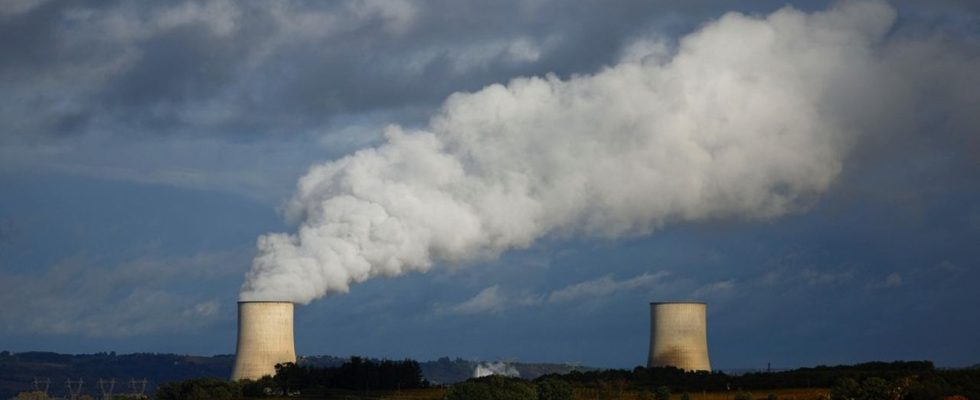Published on Nov 13, 2023 at 5:55 p.m.
How much will nuclear electricity cost French consumers? Crucial for French competitiveness and for household electricity bills, this question – at the center of the fierce battle which has opposed EDF and the government for many months – is now the subject of a consensus.
According to our information, Luc Rémont, the CEO of the energy company, has committed to selling its nuclear electricity at an average price of 70 euros per MWh, within the framework of the new regulation which must be put in place to take over of Regulated Access to Historic Nuclear Electricity (Arenh) after 2025.
A negotiation on the verge of success
This average price corresponds both to EDF’s full costs for producing nuclear electricity, but also to the maximum level beyond which the promises of maintaining the competitiveness of French industry or of “resuming control of electricity prices” for households, made by Emmanuel Macron, would be difficult to maintain.
It remains for the government to determine how to achieve this objective. The negotiation between the State and EDF on electricity prices “is about to be concluded in the coming hours”, assured this Monday the Minister of the Economy Bruno Le Maire.
A meeting between EDF CEO Luc Rémont and the ministers in charge on the subject – Bruno Le Maire and Agnès Pannier Runacher – must in fact be held this Tuesday morning to resolve the final points of debate.
An annuity to distribute
To reach these “70 euros per MWh” average selling price of nuclear electrons, the government and EDF are leaning towards the establishment of a system of taxation of profits generated by the energy company thanks to the sale of almost all of its nuclear electricity on wholesale markets, when the latter exceed certain thresholds. The revenue thus recovered by the State is then redistributed to consumers to reduce their electricity bills accordingly.
EDF and the executive would now agree on the ceiling level of this mechanism: beyond 110 euros per MWh, almost all of EDF’s revenues (i.e. 90%) linked to the sale of nuclear electricity should fall into the pockets of consumers.
But many details remain to be resolved. What will be the other thresholds for deductions from EDF revenues? What levels of taxation will be implemented? How and when will these amounts be redistributed to businesses and households? As with Arenh, will businesses have an advantage over households in the distribution of this “nuclear rent”?
Lack of visibility
Popular with EDF – because it gives it more room to maneuver than a very administered system in the sale of its electricity – this mechanism should however be very difficult to implement.
“One of the difficulties consists of maintaining conditions of fair competition with alternative suppliers (TotalEnergies, Engie, ENI, etc.). EDF will have to ensure market liquidity and be very transparent about its hedging policy to allow its competitors to replicate it and thus compete with it…” explains an expert on the matter.
The other very delicate subject with this mechanism is the lack of visibility for businesses and industrialists on the real price of electricity ultimately paid, at the end of the year. The total amount of remuneration paid by EDF depends on the evolution of wholesale market prices, and is therefore not known in advance.
“How can we make a budget, a trade policy with this level of uncertainty? This is totally unacceptable,” criticizes Frank Roubanovitch, the president of CLEEE, an association of major French consumers.
Review clauses
Finally, last uncertainty and not the least: will this very complex mechanism make it possible to achieve the objective of “70 euros per MWh on average” in France for nuclear electricity?
The success of such an objective depends both on the evolution of market prices, but also on the sales prices of long-term contracts that EDF markets to industrialists to cover their consumption. To avoid taking any risks, the government has agreed with EDF to put in place review clauses to correct the situation if this proves necessary…

